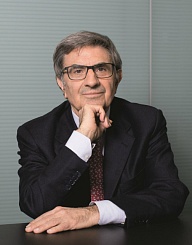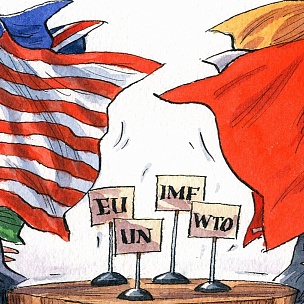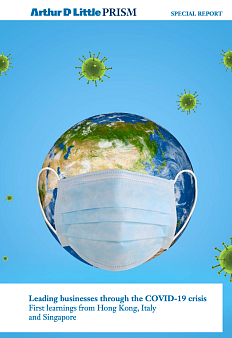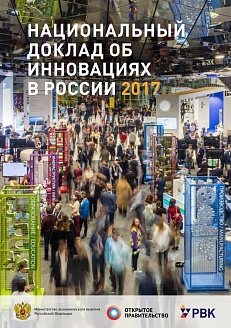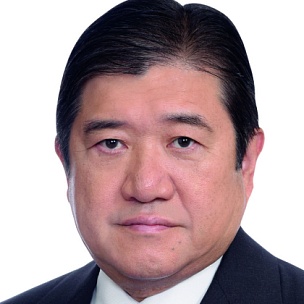As the St. Petersburg International Economic Forum approaches, Chairman of the Board at Banca Intesa and President of the Conoscere Eurasia Association Antonio Fallico talks about areas of RussianItalian economic cooperation, the spectre of a trade war, and his views on cryptocurrencies.
How much interest is there among European businesses in the Russian economy today, given the difficulties of the current political situation and continuing sanctions?
The interest is still there, and it is set to grow. There are several explanations for this. First of all, the Russian economy has returned to a growth trajectory, which will lead to an increase in demand in various sectors. Second, its not all plain sailing in the global economy today. We are now haunted by the spectre of a trade war manifest in the most acute forms of economic confrontation, a far cry from market competition. If you think about it, the various sanctions applied are also a kind of extra-economic force, a form of extra-market pressure on business. Despite all this, Russia and its economy remain attractive and exciting, although we must not turn a blind eye to the significant external risks present.
Do you share the opinion that sanctions imposed by the West do not so much harm the Russian economy as stimulate it?
I would not be so categorical as to call the sanctions a stimulus for growth, although this suggestion is more or less confirmed in reality. There are a lot of subtleties at play here. For example, the current sanctions have been a boon for Russian agriculture, with the farming sector experiencing rapid growth even back in 2015 when the overall decline in GDP was at its most serious. Successes have been more modest in other areas: in what you call import substitution, for example. So I would avoid any overly straightforward assessments. Sanctions can indeed create conditions conducive to economic development, but it is vital that the country is able to take proper advantage of these conditions. We must also consider that many production cycles in the machine-building industry, for example can be quite long when creating and implementing new technologies.
 RUSSIAN-STYLE MOZZARELLA
RUSSIAN-STYLE MOZZARELLA
Cheese making is one of the industries that has the most benefited from import substitution. According to BusinessStat, in 20132017, cheese production in Russia increased by 36.7% to 471k tonnes. The best developing dairies are those producing homemade cheese, including cheese from Italian cuisine. Mozzarella that is rather simple to make is one of the most popular cheese types. Russian cheese makers also produce Gorgonzola, Parmesan and other kinds of cheese.
How are sanctions affecting the business of European companies?
There are no two ways about it: the sanctions have had a negative impact on business for European companies. Im just talking about the financial and economic component here. Doing business is difficult since many profitable or high-potential sectors now fall under the ban. Europe is losing its share in the extensive Russian market to competitors. But this is not the main issue. The worst thing is the loss of trust. When signing deals or choosing a foreign partner, Russian executives now have to consider the possible political risks of dealing with Europe. This has led to problems even in sectors unaffected by the sanctions, like the fashion industry.
Earlier you noted that trade between Russia and Italy showed signs of growth in 2017 Italian exports to Russia reached almost EUR 8 billion, 19.3% higher than in the previous year. Should we expect this trend to continue?
Absolutely. Trade has continued to grow into 2018, although it is still far below previous levels. This is primarily due to the adjustments business has made to adapt to these difficult conditions, learning to work under the sanctions and exploiting new niches and modern work methods. Italian companies are now moving away from Made in Italy branding towards a new model of cooperation which we call Made with Italy.
Which Russian industries garner the most interest from Italian business?
The energy sector has traditionally and understandably always been of great interest to both Italy and Russia. Energy supplies from Russia increase energy security in Italy and the European Union as a whole. This is an objective factor for a variety of reasons. The sanctions have unfortunately made it impossible to work in certain areas of the energy industry, causing great harm to Italian business.
Aside from energy, Italy has an interest in infrastructure projects, transport, the machine-building industry, and the agricultural industry. The current geopolitical situation forces us to look for areas where no artificial bans are in place. I would like to draw particular attention to our cooperation in the fields of innovation and high-tech. I think that this sector also attracts interest from the Russian side. They find Italian innovations exciting and have many of their own forward-looking ideas to offer. This year at SPIEF, we are bringing with us Italian companies, including startups, which have innovations to offer, and which are looking for partners and vast new markets. Our goal is to bring them together with our Russian colleagues, who also have things to show and offer.
How do you feel about innovative financial technologies such as blockchain and cryptocurrencies? Are they really the future of the financial sector, or are they overrated?
Banca Intesas parent company Intesa Sanpaolo, the largest financial group in Italy, is active in many international programmes which are studying and promoting these new technologies. The idea is to choose the ones that can really be used, agree on the rules of the game at the very start, and establish a commonly accepted regulatory system. Under such conditions, these technologies could really speed up and improve the efficiency of many processes, including those in the banking sector. Other technological solutions, like cryptocurrencies, should be treated with more caution. They are unregulated, which means they carry very high risks.
The association you head helps countries within Eurasia combine their economic potential. Does Chinas Belt and Road initiative have an impact on the Eurasian integration process?
A direct impact. China is very determined to carry out its ambitious project. But other countries and groups of countries shouldnt just sit and wait. They will need to develop their own transport infrastructure, find points of contact with Chinas initiative, and defend their priorities. Incidentally, the overland route to Europe via Kazakhstan, Russia, and Belarus is the least politically challenging of the transport routes that the Chinese are developing as part of their new Silk Road; it passes through stable and safe territories. This must also be taken into account.
Can we expect similar large-scale projects from Europe?
The European Union is implementing its own programme of transport projects. Of course, it would be beneficial for business if the various projects in Greater Eurasia were somehow integrated with one another. This would be a powerful multiplier for all the economies in this super-region.
How do you assess the role of Conoscere Eurasia in building relations between Russian and European businesses?
I will be modest and not exaggerate the role of our non-profit organization! However, it does make its own contribution towards strengthening sociopolitical, economic, and cultural relations between Italy and Russia. The Conoscere Eurasia Association holds seminars for businesspeople in Italy and, more recently, in some other European countries. Over the past ten years, these seminars have become a platform for communication, networking, and business discussions focused on specific issues and projects, free from politics. But the main event is the Eurasian Economic Forum in Verona, which will convene for the eleventh time on 25 and 26 October 2018. The Forum is aimed at big business. Last year, it was attended by more than 1,200 people representing 850 major companies from 25 countries.
Source: SPIEF-2018 Official Magazine


